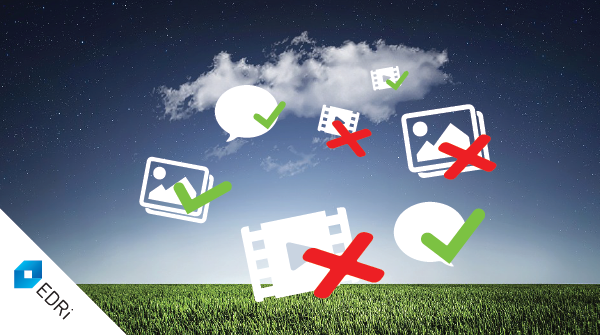Poland challenges copyright upload filters before the CJEU
On 24 May 2019, Poland initiated a legal challenge (C-401/19) before the Court of Justice of the European Union (CJEU) against Article 17 of the Directive on copyright in the Digital Single Market. EDRi member Centrum Cyfrowe Foundation has previously tried to get access to the complaint using freedom of information (FOI) requests, without success. Now, the CJEU has finally published the application for this legal challenge.

Bringing the Directive to the Court of Justice is a positive step that can help clear controversies concerning its Article 17. An independent court will assess issues that in the policy debate preceding the adoption of the Directive were typically dismissed by representatives of rights holders as fear-mongering or disinformation.
The
Republic of Poland seeks the annulment of Article 17(4)(b) and
Article 17(4)(c) of the copyright Directive.Alternatively, should the
Court find that the contested provisions cannot be deleted from
Article 17 of Directive without substantively changing the rules
contained in the remaining provisions of that article, Poland claims
that the Court should annul Article 17 of Directive in its entirety.
Poland claims that the Directive infringes the right to freedom of expression and information guaranteed by Article 11 of the Charter of Fundamental Rights of the European Union. The legal challenge mentions as particularly problematic the imposition on online content-sharing service providers to “make best efforts to ensure the unavailability of specific works and other subject matter for which the rights holders have provided the service providers with the relevant and necessary information” and to “make best efforts to prevent the future uploads of protected works or other subject-matter for which the rights holders have lodged a sufficiently substantiated notice make it necessary for the service providers — in order to avoid liability — to carry out prior automatic verification (filtering) of content uploaded online by users, and therefore make it necessary to introduce preventive control mechanisms”. In other words, obliging online platforms to filter all uploads by their users.
Unfortunately, the political context of the challenge has raised some questions. The complaint was submitted just two days before the elections of the European Parliament and Poland’s ruling Law and Justice party (PiS) has been brandishing its opposition to upload filters against the biggest opposition party, Civic Platform.
The EU Member States (and Iceland, Liechtenstein and Norway) have until 2 October 2019 to submit an application to the CJEU to intervene in this case, as defined by Chapter 4 of the CJEU’s Rules of Procedure (RoP). Member States can intervene to support, in whole or in part, either Poland’s position on Article 17 or the Council and Parliament’s position on Article 17.

Centrum Cyfrowe Foundation
https://centrumcyfrowe.pl/en/
The Copyright Directive challenged in the CJEU by Polish government (01.06.2019)
https://www.communia-association.org/2019/06/01/copyright-directive-challenged-cjeu-polish-government/
CJEU Case C-401/19 – Poland v Parliament and Council
http://curia.europa.eu/juris/liste.jsf?language=en&num=C-401/19
Directive (EU) 2019/790 on copyright and related rights in the Digital Single Market, Article 17
https://eur-lex.europa.eu/legal-content/EN/TXT/?uri=CELEX:32019L0790#017
(Contribution by Natalia Mileszyk, EDRi member Centrum Cyfrowe Foundation, Poland)


